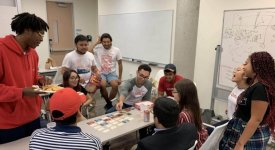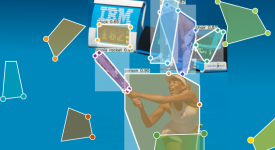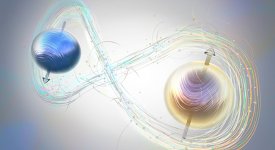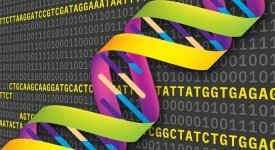

Photo credit - América Quistiano

A visual representation of a graph containing epidemiological data.

Zaib And Amir Husain
Photo by: Sloan Breeden



Photo credit: Stephanie Dloniak

The UT Campus-Jackal (left) and the UT Campus-Husky (right)

Predictive science is crucial to the prediction and modeling of extreme weather. This is a visualization of predicted storm surge on the Louisiana coast caused by Hurricane Laura, the Category 4 Atlantic hurricane that struck Texan shores earlier this year. Credit: Computational Hydraulics Group, Oden Institute.









Illustration credit: Nicolle R. Fuller/National Science Foundation














